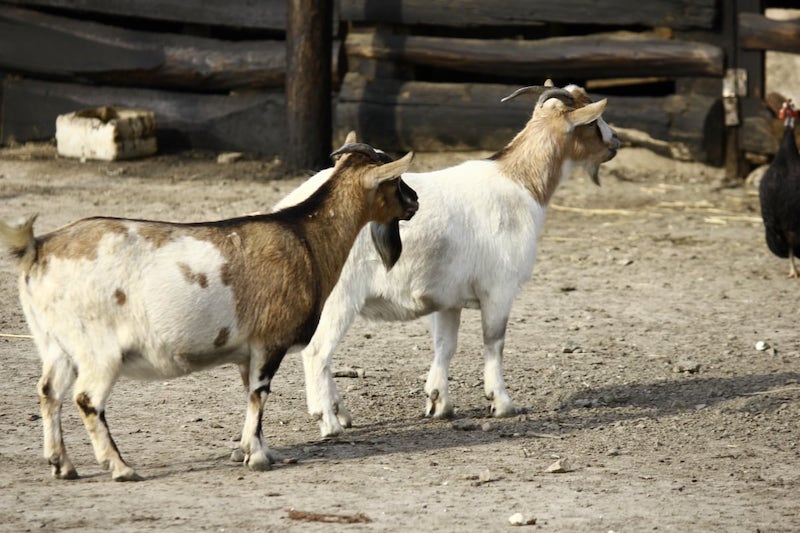
Do you want to establish a farm? Do you want to have more peace of mind for your family? Do you prefer to drink fresh milk every day? If so, you may be considering purchasing a goat. There are a few things you should consider before diving into your search for the ideal one. Is there enough pasture and space for housing? Do you want a pet, an efficient weed eater, or do you care more about goats for milk, fiber, or meat? Here are some questions to ask yourself before making a final selection.

Buying a Goat: 10 Tips
1. Start slowly.– Don’t be fooled by adorable YouTube videos. Raising goats can be challenging. Start small. Expand your flock when you’re confident in your fences and have a feeding regimen for your farm animals. Keep in mind that a goat’s total life span is about 15 years.
2. One Is None – Goats do best in groups, and as herd animals, they require pals. If you only have one, you may probably expect a lot of complaining.
3. Read – There are a plethora of excellent goat-buying and -rearing books on the market. Literature can also be useful if something goes wrong. Goats, like people, can get sick. They need special food and salt, as well as hoof maintenance and other services. You should also be fluent in the language goat keepers and breeders use to avoid any mix-ups.
4. Determine the Breed – There are three primary groups:
- Dairy goats
- Meat goats
- Fiber goats
Goats, like humans and other animals, need food to live. Goats produce milk. Meat goats are eaten. Angora goats are kept for their fur since it may be converted into yarn.
5. Shop Around – Small goats are fun and adorable. Don’t go for the first one you see. It may be the wrong breed for your environment. It’s possible that the breeder isn’t reputable. Before you acquire a goat, do your homework and look for suppliers in your region. Check online reviews. Before making a decision, go see the farm to see if the breeder is a good fit for you.

6. Ask Questions – Never allow a breeder to give you vague answers. Do you have concerns? After your farm tour, go home and look into one or more of the subjects that were addressed. You are not required to acquire farm animals right away.
7. Plan a Shelter – Make sure your shelter or pen can accommodate the number of goats you wish to maintain in the long run. Because goats will jump on it, the roof must be strong and safe. When it rains, the animals need shade and a dry place to stay. Water does not appeal to them. They should not be allowed to remain outside in extremely cold weather. If you live in a chilly environment, insulate your home.
8. Spend Time Together – What factors influence whether a goat is even-tempered, nice, and not reserved or aggressive? It’s possible that your goat will enjoy being with you. Gentle goats are simpler to milk.
9. Physical Inspection – Check to see if a goat is wearing a coat. The coat should be glossy, smooth, and silky, not rough, coarse, or dirty. The tail should not be tucked, stretched out, or held upright. The eyes should be lively and clear.
10. Compare Prices – Once you’ve decided on a breed, get quotes from several breeders. The cost of a goat varies, depending on the animal’s age, gender, breed, and disposition. Goats range in price from $75 to $300 depending on a variety of factors including age, gender, breed, and temperament. Male goats that have been neutered are generally less expensive.








